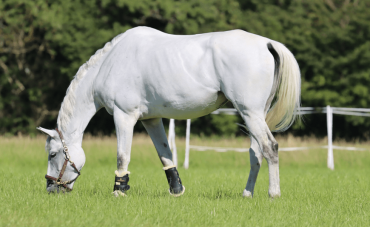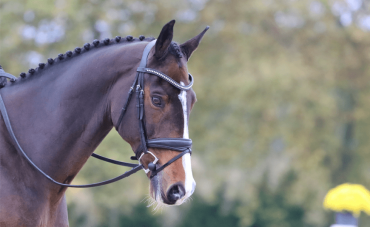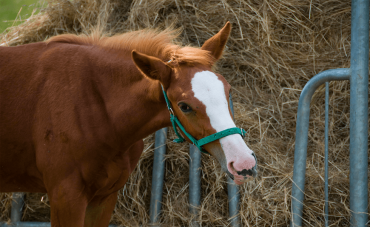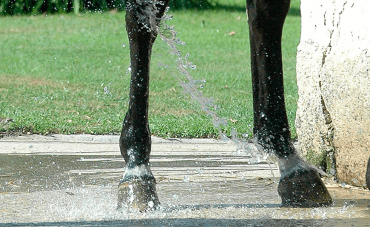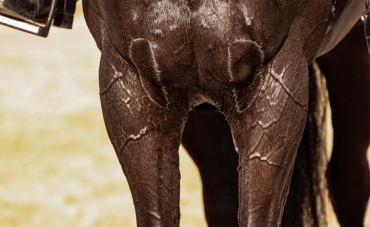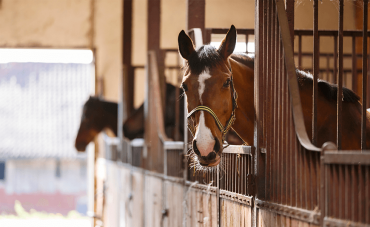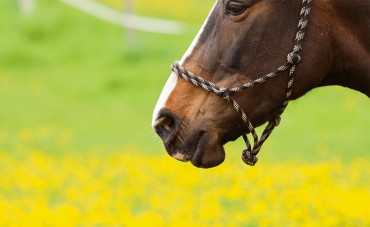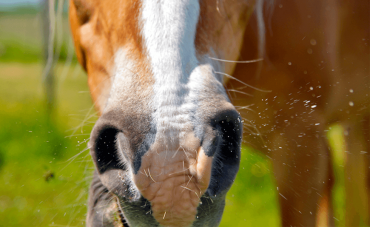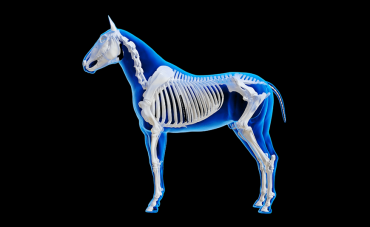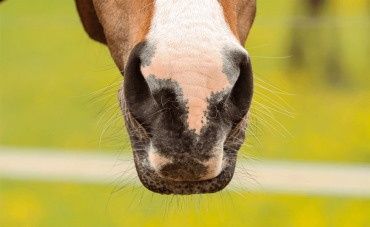In 2024, the first edition of the Audevard Trophy – In Equine Vets We Trust was launched with great success.
Discover the interview of Lorène Berlande, intern at Ecole Nationale Vétérinaire d’Alfort and proud winner of the Trophy for her thesis titled: "Induction of ovulation in mares with a single intravenous injection of lecirelin at a dose of 200 µg: a comparative study with the gold standard, hCG (Human Chorionic Gonadotropin)"
Through this initiative, we aimed to support future equine veterinarians at the start of their careers and to promote the sharing of scientific knowledge within the industry.
1. Could you tell us about your thesis and what motivated you to choose this specific topic?
My thesis is based on a clinical study conducted at the Le Pin Stud (IFCE) under the leadership of Dr. Vavasseur (ECAR resident) and Professor Bruyas.
During my second year of veterinary studies, I did an internship at the Le Pin Stud with a dual goal: to explore veterinary research and to learn more about equine reproduction. My mother and I breed a few sport horses, so I wanted to deepen my understanding of this topic.
Later, I contacted the veterinary team at the Le Pin Stud to learn about their research projects and see if I could work on one of them for my thesis. That’s when Dr. Vavasseur presented her project to me. I had the opportunity to contribute to this work and apply my knowledge in data analysis to perform the statistical evaluation.
2. Do you have any anecdotes to share about this work? A memorable moment? A challenge you faced?
What stood out the most for me was following Dr. Vavasseur during her daily activities. This research project ran alongside her fieldwork practice, so we had to balance the study with her very busy schedule during the season. It was also a chance to discuss various topics during travel time. I was particularly impressed by the dedication and passion she put into all her work. Ultimately, it was one of the experiences that most influenced my professional approach.
3. How do you think your work can contribute to advancements in equine veterinary medicine?
Research and studies are essential for advancing our daily practices. This work is part of that effort. Controlling reproduction in mares is a highly explored field due to its economic and sporting significance.
In France, the authorized veterinary drugs widely studied and used for this purpose are limited to hCG, buserelin, and triptorelin. However, the immunogenic effect of hCG restricts its use, and the multiple injections required for buserelin make it less appealing. As a result, veterinarians often turn to triptorelin, which pushes the limits of the "cascade principle" since it involves using the human injectable formulation.
To address these challenges, we aimed to test whether a single intravenous injection of 200 μg of lecirelin could be an effective alternative. This GnRH analogue has marketing authorization for use in cattle and rabbits, which better aligns with the cascade principle compared to human formulations.
4. Is there an inspiring figure (a mentor, professor, or other) who particularly influenced your journey?
I can't say there is one single person who influenced my path. It’s more of a collective of veterinarians and, above all, other interns, residents, and assistants with whom it’s easier to exchange ideas and even identify with.
The approach to the equine veterinary world during our studies is quite limited, so every experience and shared insight is incredibly valuable.
That said, my journey has been significantly shaped by my friendship with Pauline Gaulmin, a classmate. We discovered a shared passion, motivations, and principles. Together, we were involved in the AVEF Junior Association at Alfort, pursued internships in the United States, and spent our final year of study at the University of Veterinary Medicine in Saint-Hyacinthe, Quebec. This relationship has offered daily learning opportunities and a solid friendship to rely on, which has been an invaluable source of support.
5. What are your professional aspirations after winning this award? How do you envision your future as an equine veterinarian?
I am currently an equine intern at the National Veterinary School of Alfort. My career path is not yet defined, as I am interested in all areas of equine medicine. I am open to the possibility of continuing my academic training, although ultimately, I aspire to work in a multidisciplinary equine practice. Additionally, I hope to obtain the certification required to manage a reproduction center, allowing me to further develop my expertise in this field.

